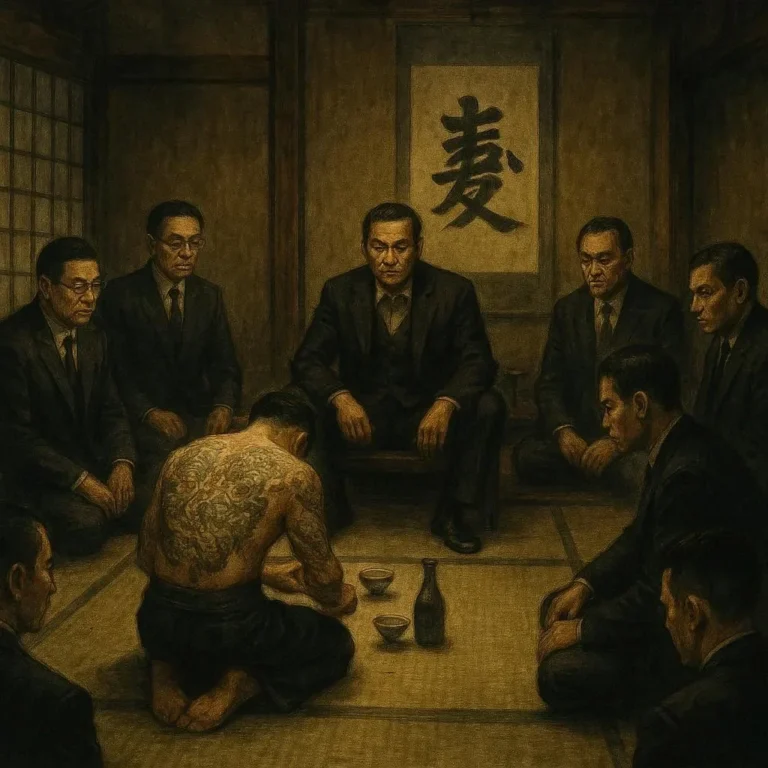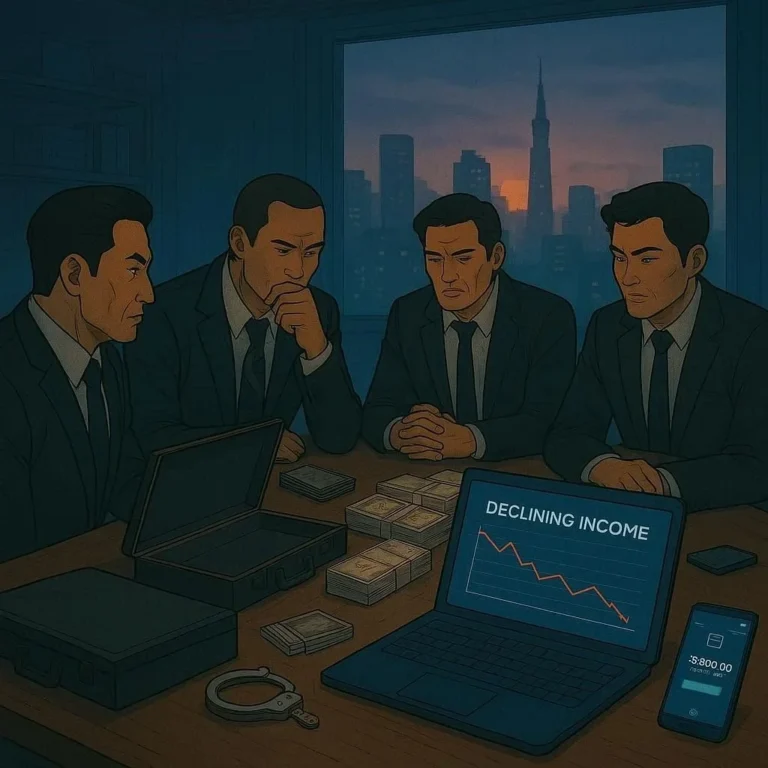508 views Yakuza and Society: How Local Communities Are Responding to Organized Crime Decline
The Yakuza, Japan’s infamous organized crime syndicates, have long been a fixture of the country’s criminal underworld. For decades, they operated with a level of impunity, controlling everything from illegal gambling and prostitution to extortion and drug trafficking. However, in recent years, the Yakuza’s influence has begun to wane. Law enforcement crackdowns, economic shifts, and changes in societal attitudes have all contributed to a decline in their power. As the Yakuza’s grip on Japanese society loosens, local communities are grappling with the implications of this change. This blog post explores how local communities are responding to the decline of organized crime and what it means for the future of Japan.
The Decline of the Yakuza
The Yakuza’s decline is a relatively recent phenomenon, but it has been years in the making. One of the primary factors has been increased legal pressure. In the 1990s, Japan enacted tough anti-gang laws that made it easier to prosecute Yakuza members and disrupt their operations. Police have also become more aggressive in targeting Yakuza activities, leading to a significant increase in arrests and convictions.
Another factor has been the changing nature of Japan’s economy. The Yakuza traditionally derived much of their income from construction and real estate, but as Japan’s economy stagnated in the 1990s and 2000s, these industries contracted, leaving the Yakuza scrambling to find new revenue streams. The rise of online gambling and other digital forms of crime has provided some new opportunities, but it has also made it easier for law enforcement to track and disrupt Yakuza operations.
Perhaps even more significant has been the changing attitudes of Japanese society. Younger generations are less inclined to romanticize the Yakuza as modern-day samurai, as they once were. The Yakuza’s code of honor and rigid hierarchy no longer hold the same appeal in a society that values individualism and meritocracy. As a result, fewer young people are joining the Yakuza, leading to a decline in membership.
The Impact on Local Communities
The decline of the Yakuza has had varying impacts on local communities. In some areas, the reduction in organized crime activity has been welcomed as a positive development. Areas once dominated by Yakuza-run businesses and extortion schemes have seen a resurgence of legitimate businesses and a decrease in crime.
However, in other areas, the Yakuza’s decline has left a vacuum that has been filled by other criminal groups, both domestic and international. In some cases, these new groups have been even more violent and ruthless than the Yakuza, leading to an increase in violent crime in some regions.
In addition, the Yakuza’s decline has had economic implications for some communities. In areas where the Yakuza were major employers, their decline has led to job losses and economic disruption. This has been particularly felt in rural areas where the Yakuza often had a strong presence and controlled a significant portion of the local economy.
Community Responses to the Yakuza Decline
Local communities have responded to the decline of the Yakuza in a variety of ways. In some areas, communities have banded together to reclaim public spaces and assert control over their neighborhoods. This has led to the formation of neighborhood watches and other community organizations aimed at preventing crime and improving safety.
In other areas, communities have turned to local government and law enforcement for support. Many municipalities have established anti-crime initiatives and community outreach programs aimed at addressing the root causes of crime and preventing the rise of new criminal organizations. These programs have often been successful in reducing crime and improving community safety.
Some communities have also sought to capitalize on the decline of the Yakuza by promoting local tourism and revitalizing areas that were once associated with organized crime. This has led to the development of new businesses and the revitalization of once-neglected neighborhoods, providing a much-needed economic boost to these areas.
The Role of Local Businesses
Local businesses have also played a key role in responding to the Yakuza’s decline. In the past, many businesses were forced to pay protection money to the Yakuza or face consequences. As the Yakuza’s power has waned, many businesses have seen an opportunity to break free from this exploitation and assert their independence.
Some businesses have joined together to form cooperatives or associations aimed at supporting each other and protecting against crime. These organizations have provided a collective voice for businesses and have helped to create a more secure and supportive environment for local commerce.
In addition, some businesses have taken advantage of the decline in organized crime to expand their operations and invest in new ventures. This has led to an increase in innovation and entrepreneurship in some areas, as businesses are no longer constrained by the need to pay protection money or navigate the complexities of dealing with organized crime.
The Role of Law Enforcement
Law enforcement has also played a crucial role in responding to the decline of the Yakuza. Police have been at the forefront of efforts to disrupt and dismantle Yakuza operations, and their efforts have been instrumental in reducing the organization’s influence.
In addition to targeting Yakuza members and operations, law enforcement has also worked to address the root causes of crime and prevent the rise of new criminal organizations. This has involved working closely with local communities and engaging in outreach and prevention efforts aimed at reducing crime and improving safety.
Law enforcement has also sought to build trust and cooperation with local communities. This has involved improving transparency and accountability within the police force, as well as engaging in community policing initiatives aimed at building relationships and improving communication between the police and the public.
The Future Outlook
The decline of the Yakuza is likely to continue in the coming years, as law enforcement pressures and societal changes continue to erode their influence. However, it’s important to recognize that organized crime is unlikely to disappear completely. Instead, it is likely to evolve and adapt to changing circumstances, as it always has.
Local communities will continue to play a key role in shaping the future of organized crime in Japan. By working together to prevent crime, support local businesses, and foster a sense of community, residents can help to create a safer and more prosperous future for themselves and their children.
In addition, law enforcement will need to remain vigilant and proactive in addressing the challenges posed by organized crime. This will involve continuing to disrupt and dismantle criminal organizations, as well as addressing the root causes of crime and supporting communities in their efforts to prevent crime.
Ultimately, the decline of the Yakuza presents both opportunities and challenges for local communities. While it is a positive development that the organization’s influence is waning, it’s important to be mindful of the potential risks and to work together to ensure that the decline of the Yakuza leads to a safer and more prosperous future for all.






